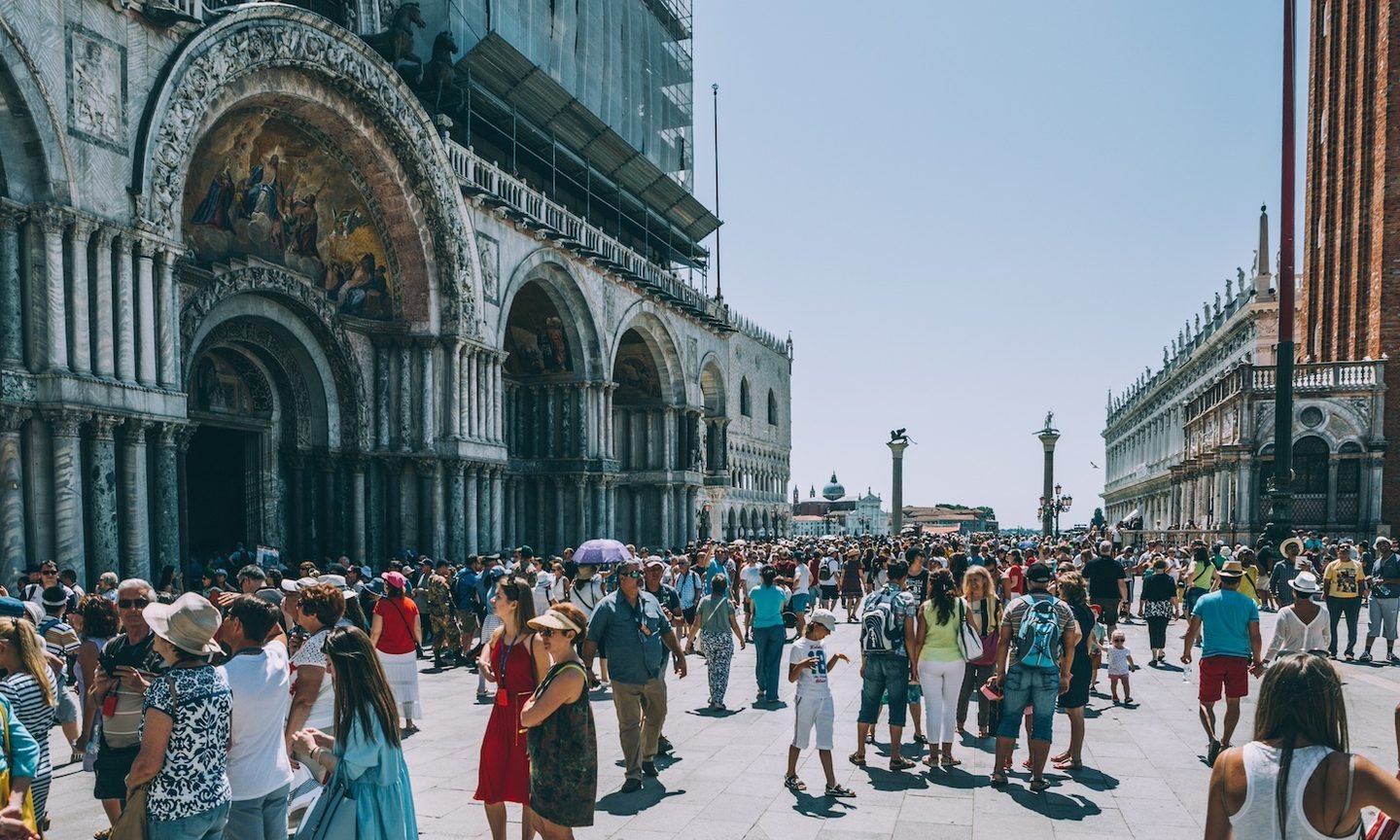What Is a Tourist Tax?
Tourism has its pros and cons. Some popular locations impose a tax to mitigate the downsides.

Many or all of the products on this page are from partners who compensate us when you click to or take an action on their website, but this does not influence our evaluations or ratings. Our opinions are our own.
Some tourist towns have a love-hate relationship with the tourists themselves. The towns need the tourists and the money they pump into the local economy, but sometimes there are too many people and things get a bit too crowded.
Several destinations have ways to charge visitors a fee, sometimes called a tourism tax, to both generate income from visitors and help offset overtourism.
What is a tourist tax, and how does it work?
A tourist tax is a fee someone visiting a city pays. It can be a fee for simply entering the city or country, or — more often — it takes the form of a fee that hotels and other accommodations charge overnight guests.
For example, Orange County, Florida, where most of the Walt Disney World Resort and Universal Orlando Resort parks are, has a 6% Tourist Development Tax (TDT) on stays at any hotels and short-term rentals that are less than six months. In March 2024, that tax brought in more than $40 million, the highest monthly collection ever.
Florida law allows county governments to impose such taxes. Some localities call the lodging tax a city tax, often on a bill payable at checkout.
Another way to collect a tourism fee is upon entering a city or jurisdiction. Venice, Italy, for example, began charging a fee of $5.35 (5 euros) for each person entering the city for the day and not staying overnight. It is an experimental program for specific days between April 25 and July 14, 2024.
During the first 11 days of the tax, the city raised $1.05 million (977,430 euros), which is less than it cost to set up the system.
Other cities are looking at the day-tripper tax experiment in Venice to see if it might be an option for them.
Australia has a Passenger Movement Charge (PMC) of $40 (60 AUD) for people leaving Australia for another country. It’s part of every ticket a transportation company sells, and it goes to the government. New Zealand, meanwhile, charges inbound rather than outbound. It has the International Visitor Levy, a fee of $21 (35 NZD) that visitors must pay when entering the country.
Other countries have similar arrival or departure taxes.
One of the highest tourist taxes was in Bhutan, where visitors had to pay $200 per person per night in what it called the Sustainable Development Fee. That fee went down to $100 per person per night in 2023.
Tourist tax amounts can fluctuate. The city or country can adjust the tax seasonally or implement it during peak times like during festivals or outside of shoulder seasons. Taxes outlined in city, county or other types of ordinances can change annually or during government sessions.
» Learn more: The best travel credit cards right now
Why do places have tourist taxes?
When tourists visit a place, they visit areas where people live and work. An increase in visitors can strain infrastructure, damage the environment, increase traffic and even raise the cost of living.
The term overtourism describes this phenomenon, when the number of visitors negatively impacts the quality of life in an area, especially for locals.
Overtourism can cause rents and other prices to increase in some areas visitors frequent, sometimes causing a backlash with the locals.
Pre-pandemic, an anti-tourism movement was getting a lot of attention in cities such as Barcelona, Spain, a popular tourist destination with overnight guests and cruise ships, which bring thousands of visitors to the city each day.
The city recently increased the tax tourists pay for staying overnight.
Who has to pay tourist taxes?
In general, visitors to a city or area have to pay tourist taxes; however, there are often some exemptions, depending on the jurisdiction and the type of tax.
Children sometimes pay nothing or a reduced rate. The same goes for people with a disability.
For example, for the Venice day-tripper tax, people who live in Venice or were born in the city, minors under 14, people with a European Disability Card along with one person accompanying them, and members of the armed forces, police and other public safety entities are exempt from the fee.
Taxes for tourists are prevalent
Chances are, you already pay a tax for being a tourist. Many accommodations charge a bed or lodging tax as part of the nightly rate at a hotel or vacation rental.
Other fees are part of airline tickets. Tourists pay the fee when booking the ticket and then the company pays the appropriate government entity. They're sometimes called departure charges, arrival charges or something similar.
No matter how and how much tourists pay, the money is intended to go back into the communities.
How to maximize your rewards
You want a travel credit card that prioritizes what’s important to you. Here are some of the best travel credit cards of 2026:
- Flexibility, point transfers and a large bonus: Chase Sapphire Preferred® Card
- No annual fee: Wells Fargo Autograph® Card
- Flat-rate travel rewards: Capital One Venture Rewards Credit Card
- Bonus travel rewards and high-end perks: Chase Sapphire Reserve®
- Luxury perks: American Express Platinum Card®
- Business travelers: Ink Business Preferred® Credit Card
Article sources
NerdWallet writers are subject matter authorities who use primary,
trustworthy sources to inform their work, including peer-reviewed
studies, government websites, academic research and interviews with
industry experts. All content is fact-checked for accuracy, timeliness
and relevance. You can learn more about NerdWallet's high
standards for journalism by reading our
editorial guidelines.
Limited Time Only: Earn $1,000 Toward Travel!
Capital One Venture Rewards Credit Card 
Travel

For a limited time, the
Capital One Venture Rewards Credit Card is offering new cardholders an especially rich bonus: Enjoy $250 to use on Capital One Travel in your first cardholder year, plus earn 75,000 bonus miles once you spend $4,000 on purchases within the first 3 months from account opening - that’s equal to $1,000 in travel!
More like this
Related articles







